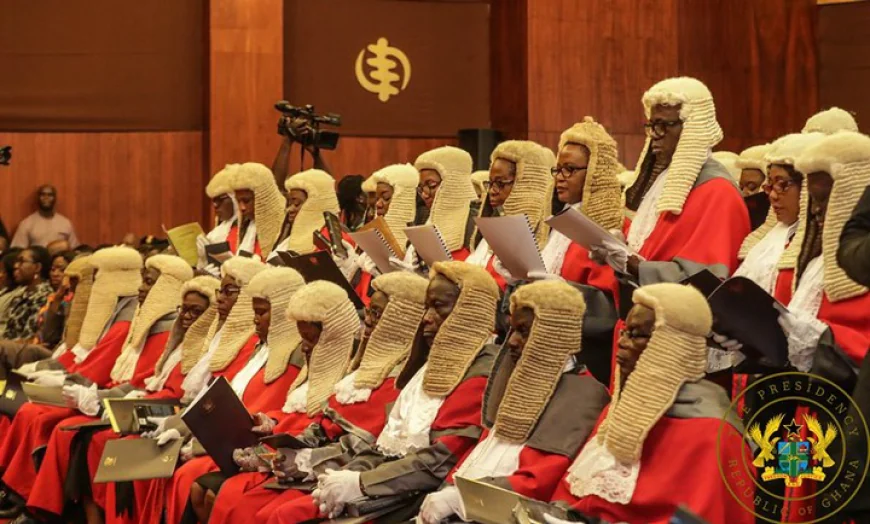Supreme Court nominee defends use of wigs and gowns in Ghana’s courts.
Supreme Court nominee Justice Dennis Dominic Adjei defends the use of gowns and wigs in Ghana' courts.

Supreme Court nominee Justice Dennis Dominic Adjei has reaffirmed his commitment to the continued use of wigs and gowns in Ghana’s courts, asserting that the attire is integral to the identity, anonymity, and dignity of the legal profession.
Appearing before Parliament’s Appointments Committee on June 16, Justice Adjei addressed growing calls—both from lawmakers and the public—for reforms to what some view as colonial-era relics. He disagreed sharply with Cape Coast South MP Kweku Ricketts-Hagan, who had questioned the relevance of formal court dress in modern Ghana.
“I treasure it… I will not support your position,” Adjei declared. “The wigs and the gowns have several significances.”
Justice Adjei argued that the traditional attire offers critical security and professional distinction, noting incidents where unqualified individuals had impersonated lawyers simply by wearing suits. By contrast, wigs and robes signal authority and affiliation with the Bar, limiting such breaches.
The debate over courtroom dress has long stirred discussions about post-colonial identity and judicial accessibility. Introduced during British colonial rule, the tradition was codified in Ghana's Legal Profession Act, 1960 (Act 32) and further reinforced through a 2017 directive by former Chief Justice Sophia Akuffo, who cited decorum, formality, and anonymity as central justifications.
While some legal practitioners and human rights advocates have called for modernization of court processes—including dress code revisions—others argue that legal robes preserve the solemnity of judicial proceedings and a shared identity across global jurisdictions.
Justice Adjei’s remarks mark a decisive reaffirmation of the judiciary’s institutional continuity, balancing modern reform pressures with deep-rooted legal customs.


